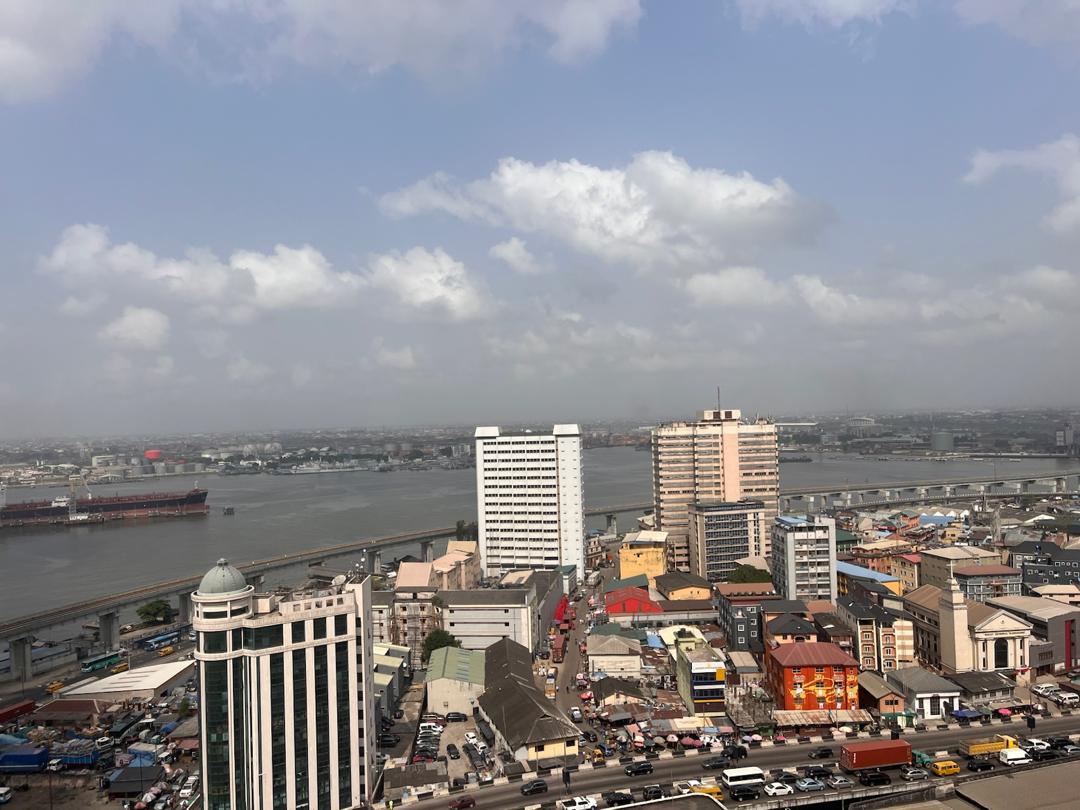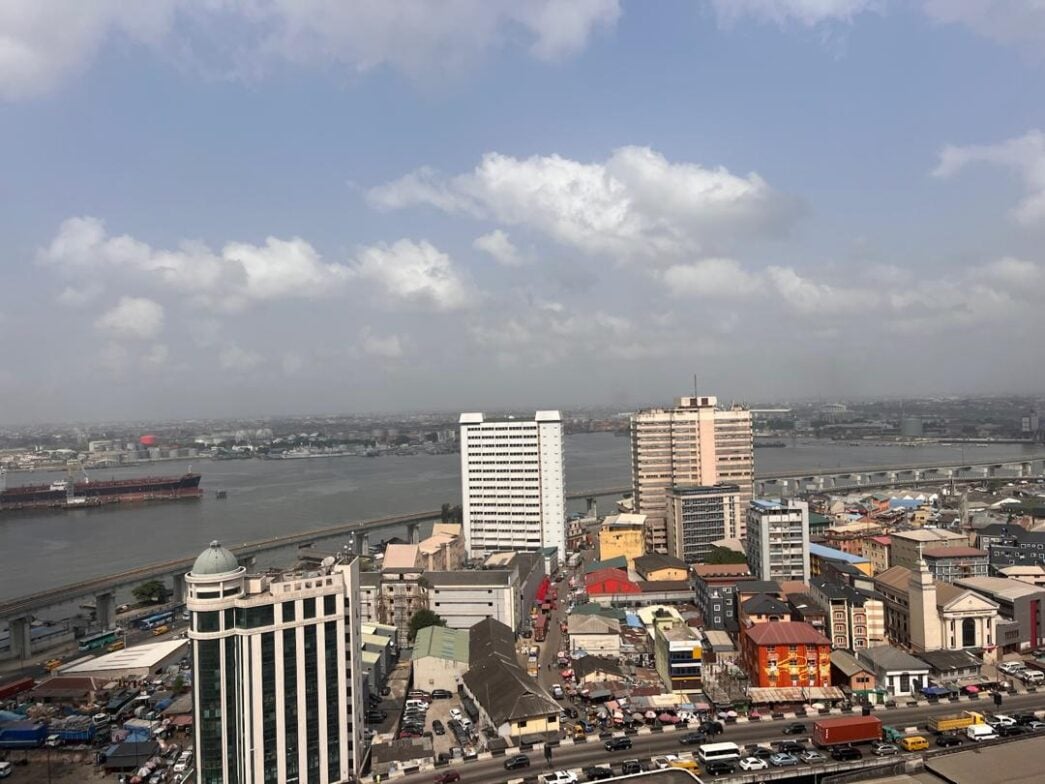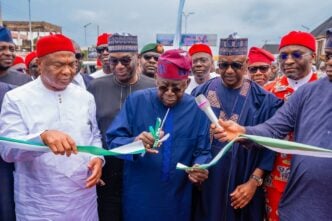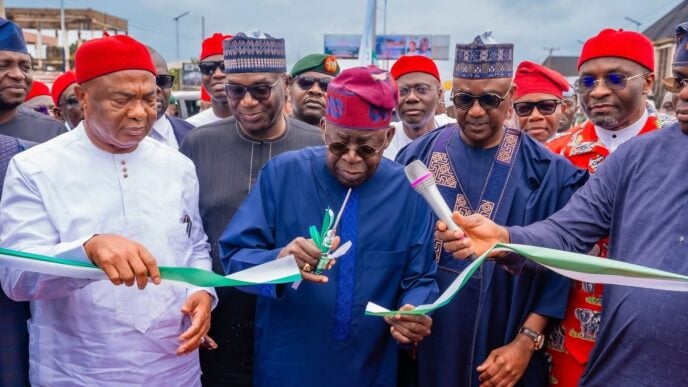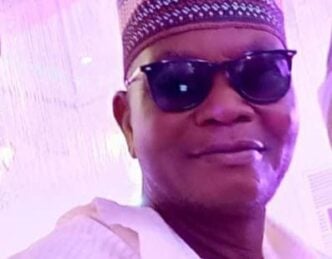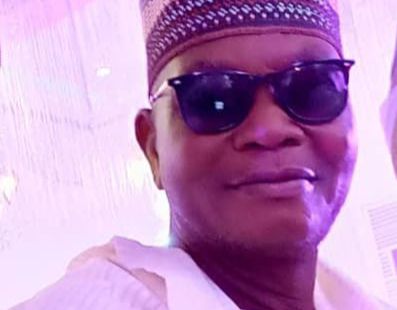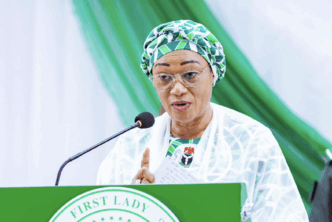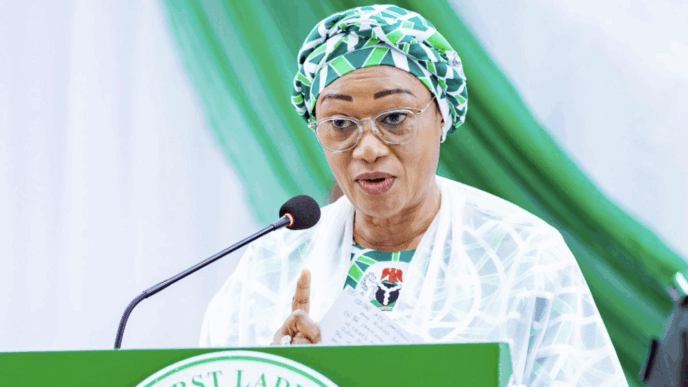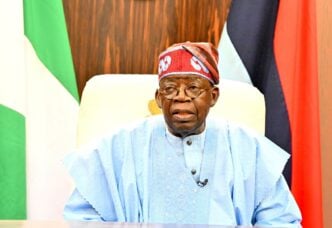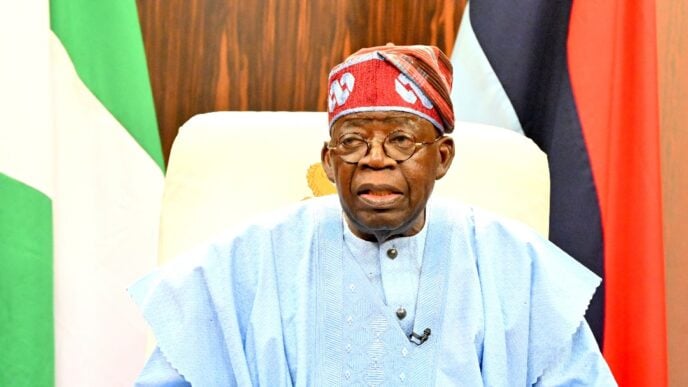For some Nigerians, Mr. President’s Independence Day 2025 speech was like a barrage of poisoned arrows aimed at every part of their body. The positive news was too much to bear, for these folks had built up a repertoire of negativities, selling expired narratives about how Nigeria could never turn the corner. We had always tried to let these folks – and the many impressionable Nigerians they try to brainwash – to know that after the rains comes the sun, that whatever goes up must come down, that economies never take on one trajectory forever, and that economies usually rebound with a bang on the back of serious, consistent reforms.
And so, as President Bola Ahmed Tinubu reeled out the achievements in the economy, in what would be one of the most succinct Independence Day speeches in a long time, these negative folks felt like molten magna was being emptied on their ambitions and their terrible wishes for our country. Is it the fact that inflation was heading down and fell consistently for 6 months, and from 24.48% to 20.12%, with every likelihood that the trend will continue into next year? Or the positive trade surplus? Or what else? In fact, it is better to present the achievements in the economy in a list, so that they may stand out for even the most cynical person to see. Here goes:
ACHIEVEMENTS IN THE ECONOMY
1. Trade Surpluses in the first half of year 2025 – N12 trillion
2. Manufacturing Export – Up 173% from the 1st to 2nd Quarter of 2025, and 67% year-on-year
3. Export throughput at our ports hit an all-time high of 8,700 TEU (20-foot Equivalent Units) in 2024, meaning an export boom, and better logistics at our ports.
4. Economic Growth (GDP Growth), ramping up already at 4.23% for September 2025, well above all predictions especially from international bodies.
5. Non- oil revenues up 411% above target, pointing to a success of Mr President’s revenue initiatives with more to come.
6. Nigeria’s debt service to revenue ratio is down to 50%, from 120% in December 2022.
7. External reserves have grown to $43 billion, with the CBN working towards a$50 billion mark
8. Naira is constantly firming up as speculators beat a retreat. Now the currency is trading at around N1,450 to the Dollar, with a chance it will continue to get strategically stronger still.
9. Tax to GDP ratio has climbed to 13.5%, up from a mere 6% about 4 years ago.
10. Debt to GDP Ratio, by the last rebasing of the GDP, has fallen to 38.8%, down from 53%, and it’s looking like Nigeria has one of the best-managed balance sheets in Africa and the world, with opportunities for further infrastructure leverage.
11. Crude Oil production inched towards 1.7 million barrels a day – exclusive of condensates.
12. Infrastructure stock has increased considerably in two years at Federal and State levels as a result of improved Naira liquidity, resulting in more roads, bridges, water projects, renewable energy projects, airports, rail, inland waterways projects, and many more thereby positively impacting Multidimensional Poverty (which is strictly a function of infrastructure).
13. Nigeria’s sovereign rating has continued to improve, denoting that the world is taking note of a better managed economy in fast recovery post-covid and beyond.
14. Interest Rate levels has begun to trend down, with the Monetary Policy Committee of the Central Bank of Nigeria slashing 0.5% off the Policy Rate in September, indicating that in step with disinflation, interest rates will continue to trend down.
15. Initiatives like the NELFUND has disbursed over N100 billion to over 500,000 young Nigerian students, while the Tertiary Institutions Staff Support Fund has started to disburse N10 million each as loans for applicants who wish to improve their personal situation through further studies, or entrepreneurial ventures.
16. Nigeria Credit Corporation – an organization central to President Tinubu’s desire to modernize our financial infrastructure and to reduce corruption – has disbursed over N30 billion to over 153,000 beneficiaries
17. N330 billion has been disbursed to over 8 million families as cash transfer, based on digital verification – NIN and BVN
18. Nigerian ATM Naira cards have now reacquired usability abroad, signaling a welcome-back from the international community who had viewed Nigerians and Nigeria’s financial system with suspicion, and as weaklings who should be avoided. It is a new day!
One would have thought that there should be cause for cheer for all Nigerians – irrespective of political association, religion, tribe or creed, should at least pause to consider this long list of achievements rolled out by the Tinubu administration in just two years of serious reforms and reordering of the economy. But no! Many are still interested in spewing negativities about the Nigerian economy, and we are not in shortage of traducers – including, unfortunately, paid foreign media houses, politicians and other personalities who have chosen exactly this moment to take digs at, and kick a weak African nation struggling to find her mojo. How so unfair!
SOMEBODY HAS TO BE AGGRESSIVE
It is in consideration of this reality – the fact that no matter what a government does, opposition will struggle to sell the downside – that I became aggressive in selling the upside. The above 18 achievements and many more must be projected and repeated often until they sink. Our government cannot afford to run away from the fight. President Tinubu is a fighter but we his ‘other ranks’ members must step into the fray and take the body blows on his behalf. Political economics is at play. No matter how well we perform on a technical level, we must also mind the politics. Maynard Keynes wrote in 1924 that Economists should understand that they cannot shy away from any discipline in society. He concluded his eulogy to his teacher and boos, Alfred Marshall, that Economists should be as aloof and unbendable as artists, but also as nimble and relatable as politicians.
So, I made two statements recently. One, that Nigeria is a much better place to live today than it was in 1960. That should be an incontrovertible statement but for the pervasive affliction amongst us of cognitive dissonances – one of the worst of which is the idea permanently held in people’s minds that yesterday is always better than today. In 1960, for those who have followed history, we had independence, but we lacked many things. The Nigerian Pound was strong but that seemed like a strategy to give us some premature confidence and empty our resources abroad because import was cheap and taken for granted. A lot of the resources of Nigeria ended up in British, and later American universities. Our people were trained but often could not translate their training into the tangibilities that matters for a young nation. Lee Kwan Yew was here in 1961 and documented his frustrations about the kinds of disciplines the smartest Africans were being made to focus on abroad and how the skills they acquired could not lift our nation. We made mistakes early because there were no manuals to read about how newly-minted independent African nations – under the weight of racism and whatnot – should be governed. I cannot place all the blame on the nationalists. They tried their best. How well are we doing today, with the benefit of technology and cheap information?
Advertisement
The second statement of mine that I wish to emphasize is the one that multidimensional poverty levels WOULD HAVE dropped significantly given the policies of Mr. President especially releasing the country from the burden of at least $10 billion yearly in fuel subsidies – monies which have now reported in the coffers of our states and local governments who now enjoy thrice the allocations they used to get just 3 years ago. These monies are being deployed into infrastructure at federal and state levels. Even the fact that the naira is weaker than before has added to this boost, giving us the opportunity of exploiting the Purchasing Power Parity advantage (because not every factor price has increased at the same rate as the depreciation of the currency or compounded inflation). This means that we are subtly rebooting and reflating our economy, focusing on our own currency. The weaker Naira is what contributed to the 30% reduction in imports, forcing us all to look for local alternatives to goods and services that would have been otherwise imported. Many of our manufacturers are now taking local inputs far more serious. And in another development, a number of our pharmaceutical companies are now producing locally on behalf of foreign big brands. These are jobs for our people. Are our traducers still living in lala land? The economy has changed, and we need to change with it. Like our people say, you cannot watch a masquerade by standing at one spot. All young Nigerians and the not-so-young are invited to be more dynamic in order to rise with the new tide. My advice is:
1. Stay positive about your country, irrespective of your political association.
2. Follow the information and data and take note of the changes in the economy.
3. Make yourself ready and available by constantly tooling yourself for relevance in this economy and beyond. Do not be overwhelmed by cynicism.
4. Use the new infrastructure being built wherever you can, to reposition yourself to where better life awaits you. Ignore those who remain in one place, criticizing infrastructure spending.
5. Always reach out to take advantage of new opportunities. Over 500,000 students have benefited from student loans and their lives as well as the lives of their parents are the better for it.
6. When you reposition and get lifted, do have a grateful heart and eschew meanness to your country. Speak up. But if you don’t want to, at least do not benefit on one hand and continue to denigrate your country.
7. Be wise. Every country has unending challenges. Some countries are great at packaging themselves and selling the best optics.
8. Be careful about your comments online and elsewhere as you are dictating your own future. Artificial Intelligence is garbage-in, garbage-out. You will be affected in the future by the same haunting comments you have added online about your country. And this will come whether you change nationality or not. You may not be able to totally change your skin.
9. Ok, if you want to be totally selfish, be wise and take advantage of the ongoing tectonic changes in the economy. Whether or not you are graceful or generous, your upliftment is our joy, because when you earn more, the GDP increases.
10. If you find some gracefulness in you, please share from your improved fortune. Not everyone will be strong and compos mentis. So, we must continue to capitalize on our social capital – which means we must continue to uplift those around us. Our society has always benefited from that.
RELIGIOUS PLOT – THE VULTURES ARE CIRCLING…AGAIN
And so, whereas folks like me are trying to upsell the improvements in infrastructure wherever we can find them e.g. in the health sector where more than 4,000 primary healthcare centres have been renovated, 6,000 caesarian sections conducted for free in two years, and over 61 refurbishment and repositioning projects are going on in tertiary institutions, or in the Ministry of Works that is assiduously working on major projects across the country, a major campaign seem to be targeted at Nigeria from foreign entities and their Nigerian collaborators. From Congressmen in Canada to the USA and even the Prime Minister of Britain, Kier Starmer, up to some heavy media personalities like Bill Maher, there has been a heavy media campaign about a non-existent genocide in Nigeria, which is designed to cripple Nigeria if it sparks another religious crisis. The timing is ominous given the struggles of the past years and the likelihood that we are clambering out of the worst of our economic woes into better standards of living rooted in a stronger economic foundation. We should do everything to push this evil plot back, but we should also note how easily powerful people home and abroad can conspire – on the back of lucre – to derail the progress of our nation. I believe though that this time, we have crossed the Rubicon – economically speaking – and these reforms will yield solid results because some of us will guide them appropriately and fight the media war required to ensure they berth successfully.
DATA FREQUENCY AND THE RENCAP REPORT
In the course of the week, a report came out of the Rencap, the investment bank headquartered in Russia. The headline was that the Naira is overvalued by 30% even at the current rate of N1,450. This means that according to Rencap, the Naira should sell at about N1,850 based on the calculation of what is called Real Effective Exchange Rate (REER), a formula that compares exchange rates in two countries by looking at their relative consumer prices. But before we panic, the basis of Rencap’s analysis is that Nigeria has overestimated her inflation. Rather than the current 20.12%, the firm estimates Nigeria’s inflation presently at 12% and projects that we will reach 6% inflation in the middle of 2026. I have also projected that Nigeria will hit single digit inflation next year, a situation that will greatly aid our quest for double-digit economic growth. The Rencap report is good for Nigeria as it calls our attention to our relative conservatism in managing our numbers. The report is, however, deficient in assuming that nations adjust their exchange rate on a whim based on some quick calculations. Nations will be cautious of taking such actions because that will create too much volatility. This is what Nigeria is trying to avoid by every means. What if the tide changes? What if an ‘unknown unknown’ event crystalizes? What if global financial markets blow up – as they have in the past?
Advertisement
These will be the questions going on in the minds of economic managers. Moreso for Nigeria, the behavioral change we have been able to achieve which is resulting in a 30% drop in imports, a boom in exports (8,700 TEU – cargo throughput) achieved in Apapa Ports in 2024 – an all-time-high, a focus on local inputs, a boost in manufacturing exports, must be consolidated and not frittered away on the back of financial gymnastics. Another Reuters report however projects an even stronger Naira by the end of 2025 into next year. Perhaps we should be looking at N1,300 to the dollar if Mr. Cardoso’s astute management of the currency at the Central Bank, accretion to foreign reserves through frugal fiscal management by the Coordinating Economic Minister, Mr. Edun, and overall no-nonsense leadership by President Tinubu continues to hold firm in the short to medium term, for solid long-term results. The rest of us are here to do the murky but highly fulfilling work of tackling traducers and projecting our nation no matter whose ox is gored. This is the time for the best of political economic brinksmanship. Nigeria’s greatness has come. Every Nigerian, home and abroad, and even non-Nigerians, are invited to get involved. And for all who are in the data space, I urge more investment, higher frequency in churning out our most-important metrics. Our future is fully in our hands.
Views expressed by contributors are strictly personal and not of TheCable.

